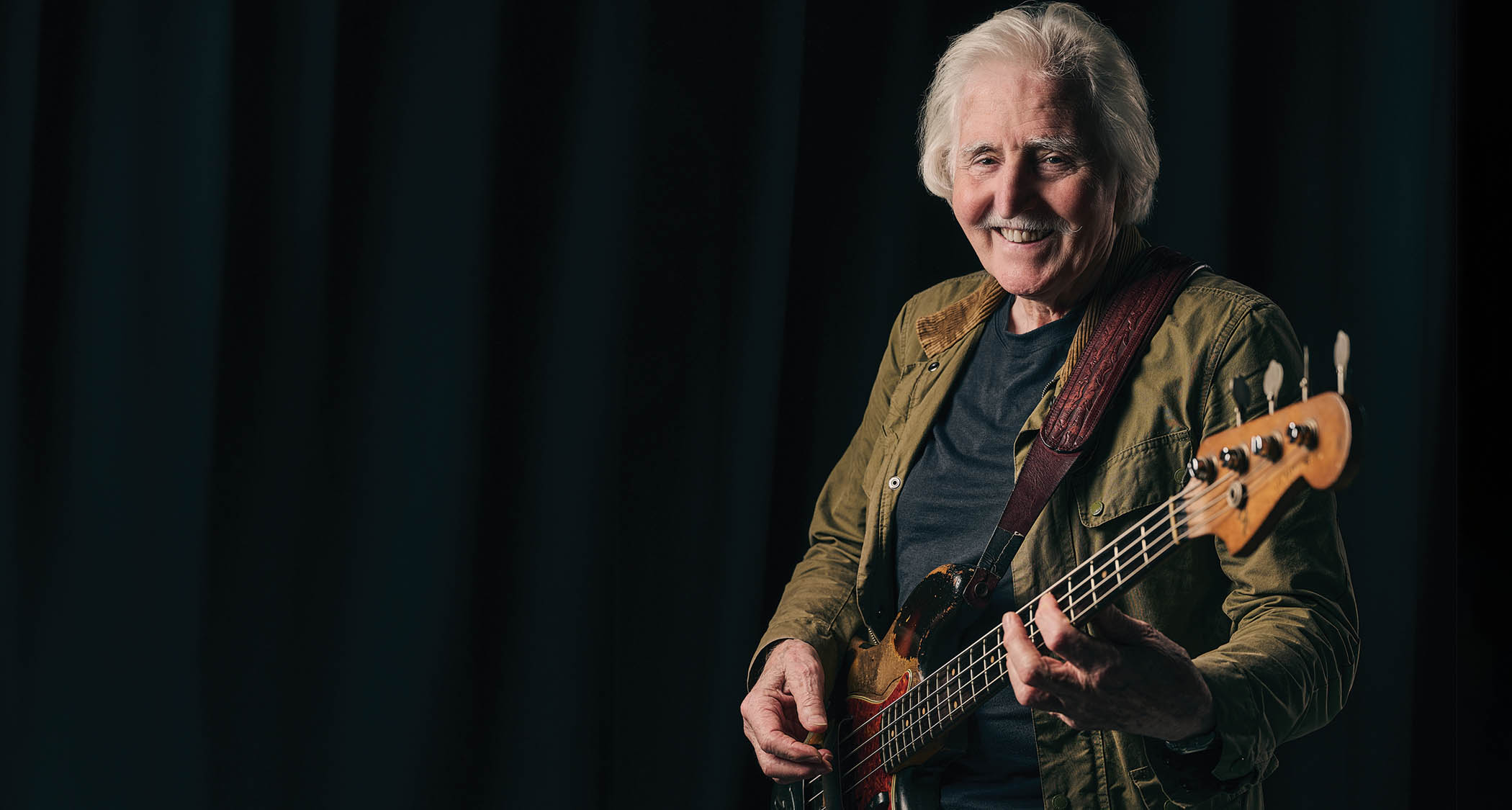“I’m at the height of my skillset, and the minute I can’t play or sing as well is the minute I plan the exit – I don’t want to be the old grey mare”: Joe Bonamassa’s career keeps hitting new peaks – but he’s already decided when he’ll give it all up
In this candid conversation, Bonamassa welcomes us to Nerdville to discuss his journey from 12-year-old prodigy to one of today’s most talked-about guitar players, what stops him being a traditional blues guitarist, and why he won’t be doing this as an old man
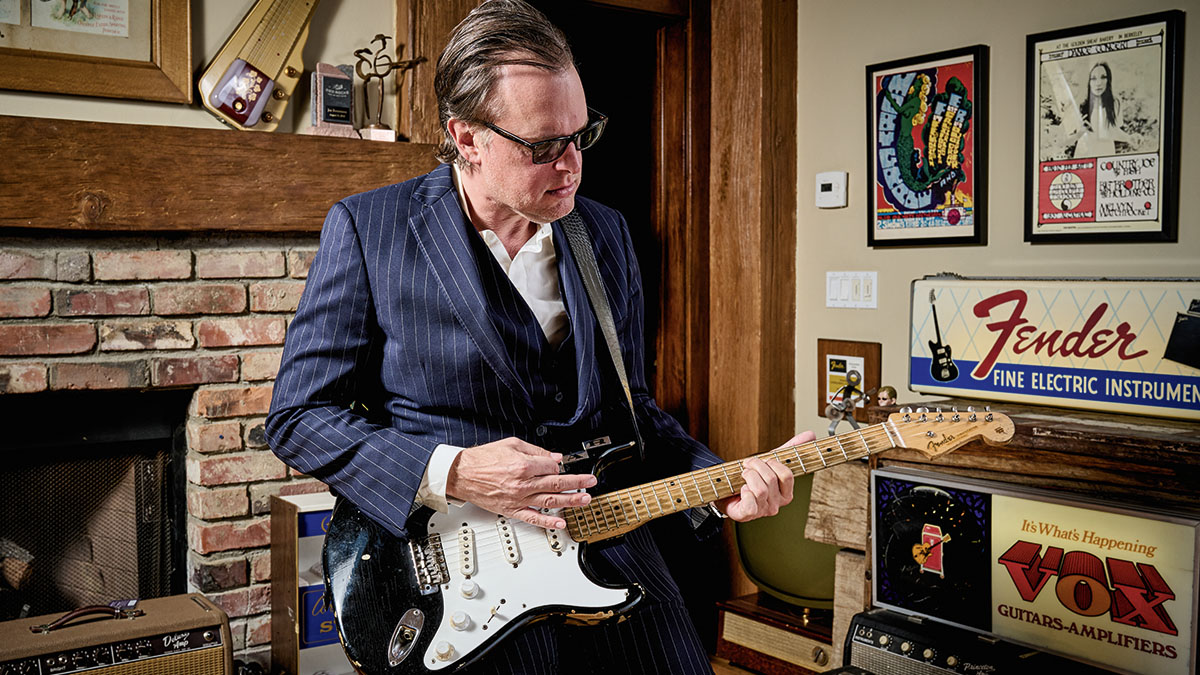
All the latest guitar news, interviews, lessons, reviews, deals and more, direct to your inbox!
You are now subscribed
Your newsletter sign-up was successful
“Ask anyone in Hollywood where the craziest people live and they’ll say Laurel Canyon,” said ex-resident Joni Mitchell. And as our taxi winds uphill through Laurel Canyon on a summer’s day, talk naturally turns to its (in)famous inhabitants.
Once the stomping ground of Frank Zappa, David Crosby and Jim Morrison (to name but a few), this fabled neighbourhood in the Hollywood Hills is the stuff of legend, and we’re excited to be here.
But not everybody shares our excitement. When we reach our destination and start to unload, the Uber driver appears nervous and is keen to get back in his Toyota. Pointing to a nearby tree, he informs us the last time he was here he encountered a mountain lion. As the car speeds off downhill, we buzz the intercom hoping for a swift and safe entry.
Several long minutes pass and we begin to wonder if we’re at the right address when the heavy metal security gate slowly swings open revealing a crossed pair of oversized model Les Pauls. Well, it certainly looks like we’re in the right place. Anticipating a growl and glancing nervously over our shoulders, we proceed up the steep driveway past a bright neon sign that confirms our 5,500-mile journey’s end: “Welcome to fabulous Nerdville California.”
Visions of killer wildlife rapidly give way to thoughts of killer guitars as we arrive at an open garage crammed full of six-string objets d’art and collectibles. Here, we’re met by Joe Bonamassa’s longtime friend Rick Gould who shows us into the living museum of Nerdville West – the Los Angeles counterpart to Nashville’s Nerdville East. And emerging from the skylit lounge that is the location of this issue’s cover shoot is the man himself.
Though he will later don the trademark suit of ‘Joe Bonamassa the Entertainer’, he greets us wearing a homely t-shirt, jeans and slippers and we head outside to sit down and chat under the warm glow of the Californian sun. Bonamassa makes himself comfortable, lights up a cigar and cracks open a Diet Coke as he gazes out across Laurel Canyon contemplatively.
Now 46, he is a far cry from the wide-eyed 12-year-old prodigy dubbed ‘Smokin’ Joe Bonamassa’ who shared stages with the likes of BB King – a mentor whom the guitarist cites throughout our conversation.
All the latest guitar news, interviews, lessons, reviews, deals and more, direct to your inbox!
Back in the late ’80s, it would have been easy to assume that such a precocious talent was destined only for success. But come his third solo record, 2003’s Blues Deluxe, the young maestro’s career hung precariously in the balance.
“That was the last shot,” reveals Bonamassa. “If we didn’t get any traction, I was pretty much over. And I’d probably be playing for somebody else or not in the music business. This was it. It was the last 10 grand my manager and I had. We put it all in, made the record in seven days, mixed and mastered, and that was it. If it didn’t work, then we would not have done part two.”
Evidently, it’s a time of personal reflection. With his latest – Blues Deluxe Vol. 2 (J&R Adventures) – appearing alongside a remastered 20th anniversary version of Blues Deluxe, the world’s hardest working bluesman is taking stock and reconnecting to the genre that helped define the trajectory of his career.
Comprising 10 solid tracks of covers and originals, Bonamassa pays tribute to his musical heroes once again, proving the fire still burns as strongly as it did two decades ago. Or, as he puts it, “With Blues Deluxe Vol. 2, I was like, let’s do a second volume and answer two questions: one, am I better now than I was 20 years ago? And two: do people still care?”
Is it fair to say 2003’s Blues Deluxe album was your last chance saloon?
“It absolutely was. And it was the first record that actually got some traction with my fans. We were lucky enough to be opening up on that tour for Peter Frampton and George Thorogood and we sold the shit out of it right out of the van. We knew we had something. It wasn’t an explosion, but we started to gain some traction.”
Was it an accurate reflection of where you were at musically?
“It was basically our live set, a few extra songs and a couple of originals. That was it. We went in and played them live. I would sing them, then we’re good. We didn’t have time. We didn’t have a budget. It was $10,000. Thank you to [Unique Recording Studios co-founder/co-owner] Bobby Nathan and [producer] Bob Held, because nobody made any money on that. We just did it because we could. And it was the last shot.”
Every once in a while we’ve got to remind ourselves what genre we live in. And this was it
And now, 20 years later, you’re putting out a remastered version of the album.
“When it came to releasing Blues Deluxe Vol. 2, I wanted to do something for the 20th anniversary of Blues Deluxe – which is scary enough! – but we didn’t have any extra tracks. Truth be told, the hard drives from 20 years ago don’t even fucking work, so we couldn’t remix it even if we wanted to. We remastered it off the CD. It was the only thing that worked.”
Over the years, you’ve explored musical styles other than blues. Was Blues Deluxe Vol. 2 a way of reconnecting again?
“100 per cent. We had a tour last year in the summer where we played absolutely no blues, and I turned to Josh [Smith] and said, ‘Every now and then we’ve got to remind ourselves what fucking genre we’re in.’ Because it can go in so many different directions. I mean, I could do a whole set of Black Country Communion if I wanted to, which is not a bad thing. But every once in a while we’ve got to remind ourselves what genre we live in. And this was it.”
What’s the reaction to Blues Deluxe Vol. 2 been like so far?
“I’ve gotta tell you, I’m surprised at the reaction. I thought it would be released and people would say, ‘Okay, he’s playing the blues again. Whatever.’ But behind the scenes it’s been the same kind of reaction we got with [The Ballad of] John Henry.”
It’s the right time for me to do an album like this because I couldn’t have sung these songs 20 years ago
Is it the right time to do an album like Blues Deluxe Vol. 2?
“I think it’s the right time for me to do an album like this because I couldn’t have sung these songs 20 years ago. And I’m not shredding over this shit like I used to. I kind of approached it the right way for the very first time because in some ways I have nothing to prove.”
How did you approach the recording sessions?
“The only solo I overdubbed in the room was I Want To Shout About It because I needed a very specific sound, and I used Kirk Fletcher’s Fender Super [Reverb] for it because I wanted that Ronnie Earl thing. That’s the only solo I remember sitting in the control room overdubbing. Everything else was just on the floor.
“The way we record is we kind of go through it and work out the arrangement, then we do one take with the scratch vocal – me singing live and playing. We cut to a grid and then during the next take or two I’m hearing my vocal, so I don’t have to sing and play at the same time. We hit the solos on the floor and that’s it.”
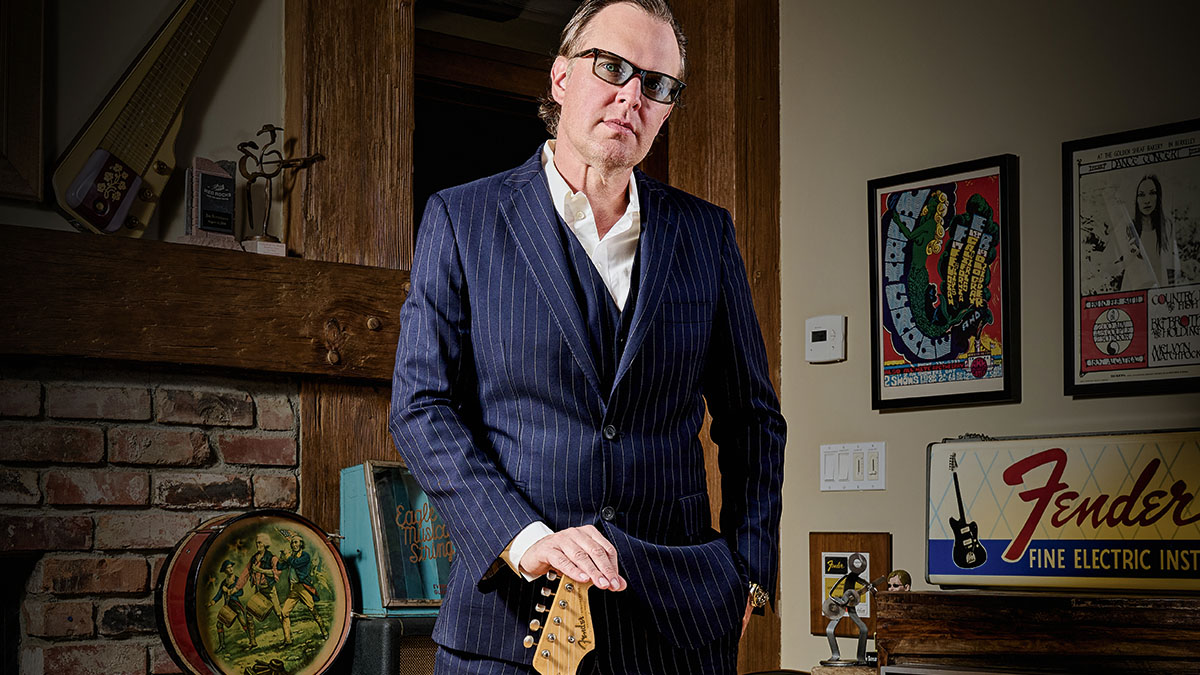
What guitars did you use to record Blues Deluxe Vol. 2?
“I had the Al Bosco ’59 Les Paul, a ’61 355 mono, a ’59 dot neck [Gibson ES-335] in Sunburst, a ’67 Sparkling Burgundy Flying V, a Blackguard Tele, which I didn’t really use, a rosewood-neck Strat, probably a Blonde one, and a ’57 or ’58 maple-neck Strat. That’s it.”
And guitar amps?
“Mainly a [Marshall] JTM45, a [high-powered] Tweed Twin and a Dumble Ultraphonix [modded Fender] Vibrolux [Reverb].”
What about pedals? We thought we heard a little Boss CE-1 Chorus Ensemble flourish.
“Yeah, maybe a wobble. I always bring a kit and there’s always a CE-1 to hand. I used a two-knob Keeley Compressor, which is pretty much an MXR Dyna Comp, with a Strat and Kirk Fletcher’s Super [Reverb] on I Want To Shout About It for clean tones. With the Super around 4, the compressor cleans up the amp, but it also brings the sound forward.”
Did you use a Klon at any point?
“I did on Is It Safe To Go Home, along with a low-powered [Fender] Twin and a [Fender] Tweed Bandmaster. The big solo is a Klon.”
Do you have any tips on recording with pedals?
“If you don’t need the whole pedalboard, just use pedals individually. Recording-wise, the sound is a lot thicker if you’re not going through it all. Even if you’re going true bypass, you’re losing something – the symbiotic relationship between you and your guitar. You’re under a microscope in the studio, and if I want to use a chorus, I’m going to plug in to just a chorus.”
If you’re talking about ES guitars, one of the secret weapons is the mono 355. You get all the perks of a 335 without that f***ing Varitone and stereo cable
In the music video for Twenty-Four Hour Blues, the protagonist plugs a Les Paul into a Fender Deluxe Reverb. Did you record with the same rig?
“No. I used the 1961 [Gibson ES-]355 mono. It’s got a sideways Vibrola like an SG. I bought it from the original owner in upstate New York. If you’re talking about ES guitars, one of the secret weapons is the mono 355. You get all the perks of a 335 without that fucking Varitone and stereo cable. It’s mono, but with an ebony fingerboard, so it bites a little bit more. I don’t like modern ebony fingerboards, but I like old ones.
“That went into a high-powered [80-watt] Tweed [Fender] Twin and a [Fender] Vibrolux [Reverb] with a Dumble Ultraphonix mod. I also used a reverb tank. My Vibrolux with the Dumble mod is the shittiest-looking ‘Silverface’ ’73 Vibrolux you’ve ever seen – ratty, beat up. But it’s the most valuable player I have session wise.”
If you plug straight into a legit Bluesbreaker combo and turn it all the way up, you quickly find out no treble booster is required – it sounds just like the ‘Beano’ album
We love the Bluesbreaker-style tones on Fleetwood Mac’s Lazy Poker Blues and Guitar Slim’s Well, I Done Got Over It.
“I’m lucky to have the kit. When I want to go Bluesbreakers we can go Bluesbreakers: ’59 Les Paul, [Marshall] JTM45, basketweave cabinet. The JTM45s get there. We also used a real Bluesbreaker combo with a ’59 Les Paul. Straight in. Done.”
Treble booster or no?
“If you plug straight into a legit Bluesbreaker combo and turn it all the way up, you quickly find out no treble booster is required – it sounds just like the ‘Beano’ album. It’s the KT88s. Plug right into the bright channel and literally dime every fucking thing and that’s the sound.”
Are your vocals where you want them to be now?
“I’ve learned how to sing. I didn’t know how to sing 20 years ago. I have to sing and I’ve embraced it. I don’t want to be an artist who mumbles through a couple of verses before getting to the guitar solo. You have to be a total artist. Eric Clapton’s the total package – he can sing, play and the songs are great.
“That’s how you win longterm. You don’t want to be a player who’s just meandering until you get to the good stuff. Everything’s got to be good. But not every guitar player’s a natural singer, and not every singer’s a natural guitar player.”
Short of starting a hip-hop career, there’s nothing I’m going to do that will alienate my 35-year-old fanbase
Did pushing your vocal ability on the Three Kings tour help your singing improve?
“It totally made me a better singer. A thousand per cent. I came off that tour going, ‘All right, I learned a few things about myself, I pushed myself and I’m a better singer for it.’”
Are you a more confident singer now?
“I can carry a tune and I think at least one of the chips on my shoulder has been knocked off. I don’t feel like I have to prove anything. At this stage in my life, either you like what I do or you don’t. I’m a polarising character, I know this going in. You either like it or you don’t. And if you don’t, that’s fine.
“There’s nothing I’m going to do, nothing I’m going to change about myself, to make the naysayers go, ‘Oh, I was wrong.’ And short of starting a hip-hop career, there’s nothing I’m going to do that will alienate my 35-year-old fanbase.”
Do you feel typecast?
“No. The last record I made was with Black Country Communion [BCCIV]: straight ’70s arena rock. And I can do that. I can also play Blues Deluxe. It’s been a choice not to be a one-trick pony. I don’t think I could fill the Albert Hall if I just did one thing.
“There is a typecast – like the old man singing the blues. But Son House was a young man singing the blues, as was Howlin’ Wolf, BB King… But by no means am I the spokesman for the blues. There are true, dyed-in-the-wool blues musicians who just do blues.
“I’m not a traditional blues player by any means. I’m a rock guitar player, I’m this, I’m that. There are people who literally spend their whole lives in dedication to the true artistry of traditional blues. I’m not that. I’m too ADD. My taste in music is so vast it would be hard to dedicate it to just one thing.”
How would you define yourself as a musician?
“I’m in the entertainment business. I’m not in the guitar business. I’m not in the vintage guitar business. I’m not in the blues business. I’m not in the singing business. I’m not in any other business apart from the entertainment business. When the naysayers come out and say, ‘This person’s a better guitar player than Joe,’ I’m like, ‘Okay. I agree with all of it.’ But I can entertain people.
“I learned from people like Buddy Guy and BB King and George Thorogood and many others like them. I put that fucking suit on and I go out there – it’s a part of the character. Put it this way: it would be really fucking weird if you came to my house at 11 o’clock in the morning and I was dressed in a suit and sunglasses, right? You’d be like, ‘This was an odd encounter.’”
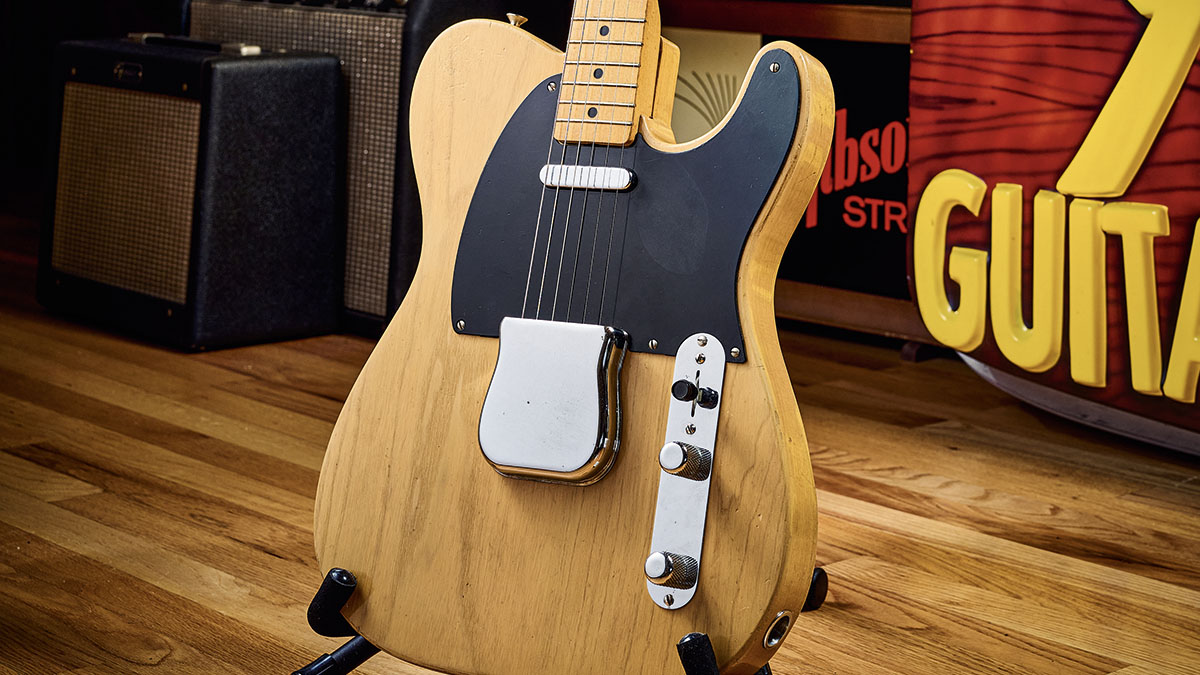
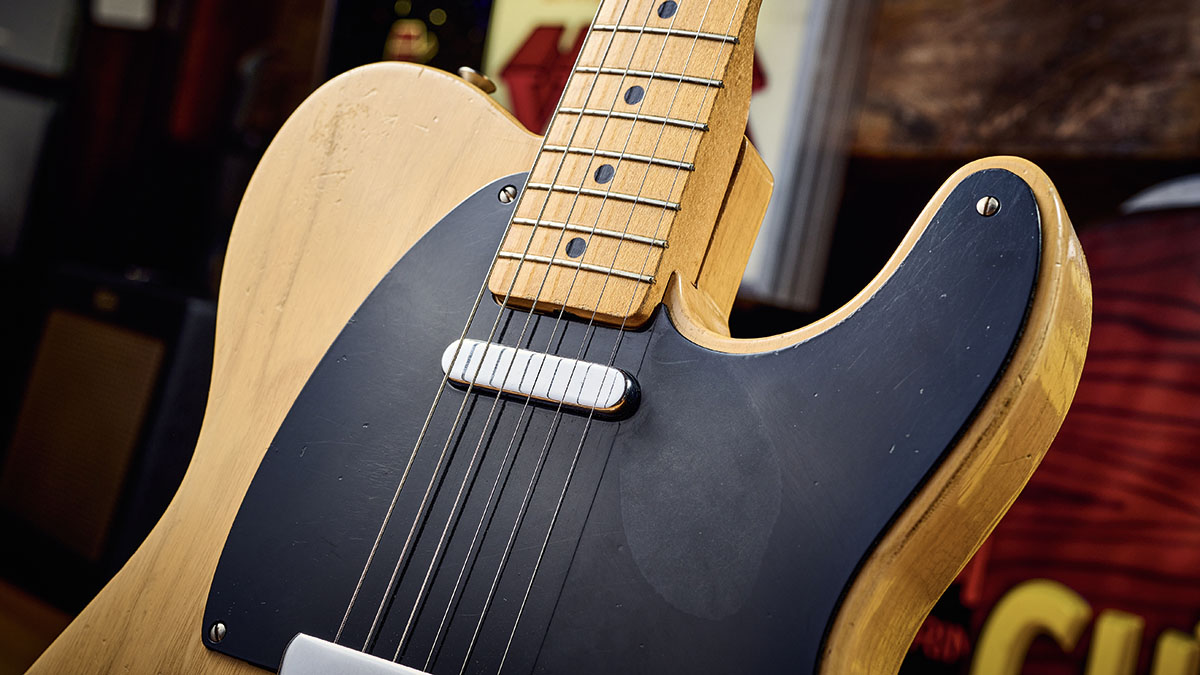
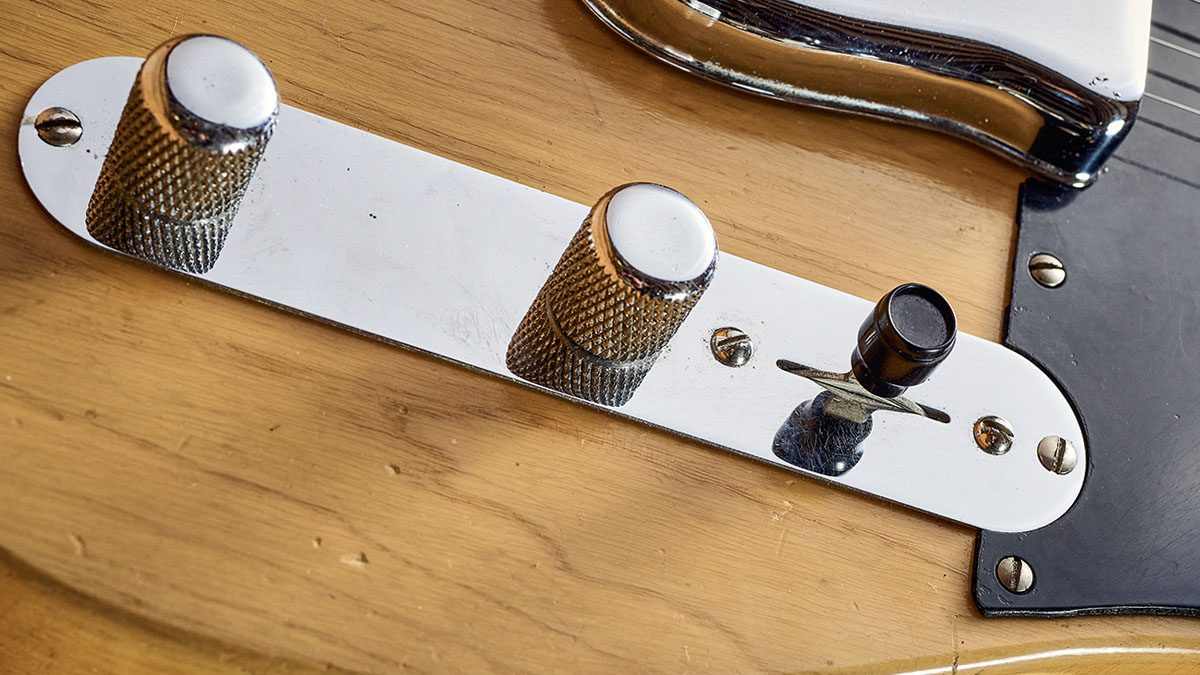
What makes a good entertainer?
“People are attracted to confidence, enthusiasm and energy. If you have all those three factors it doesn’t matter if you play in tune or sing great. But you need a fucking song. You have to walk out there and whether you’re a rock star or not, whether there are five people or 50 fucking thousand, you have to walk out there and say, ‘I’m me and you’re not,’ and look them in the eye.
“This whole notion of walking out there like, ‘Oh shucks, oh gee,’ is bullshit. You’re not thinking the right way. If Johnny Rotten went on stage and said, ‘Oh hey guys, we’re just so happy to be here tonight, we’re just so darn lucky,’ do you think the Sex Pistols would be the same? No way! He was like, ‘Fuck you and fuck this,’ and bashed his way through 40 minutes of punk-rock. That’s what people are attracted to. It’s the false modesty I find off-putting.”
Being truly humble is about accepting your assets as well as shortcomings.
“Exactly. You have to be self-aware. I listen to my stuff and I think it’s shit sometimes. But somebody likes it, so I have to check that at the door. A lot of the time, artists get stymied by their own head going, ‘I can’t release this, it’s not good enough.’ Yes, it is! And if you have to work on it for another six years, it’s not going to get that much better.”
That’s when working with someone you really trust can help.
“That’s when a real producer can be like, ‘We’re done.’ And I do that all the time.”
Record production is about psychology, taste and saving the artist from themselves. In fact, most of it is about saving the artist from themselves
Do you learn a lot about yourself as an artist working as a producer?
“Absolutely. 100 per cent. Record production is about psychology, taste and saving the artist from themselves. In fact, most of it is about saving the artist from themselves. This is not rocket science. Good players, great songs, done. That’s all you need.”
And a bit of luck.
“And a bit of luck, yeah. For sure. More luck than people think, actually.”
And hard work?
“I work harder now than I did 20 years ago.”
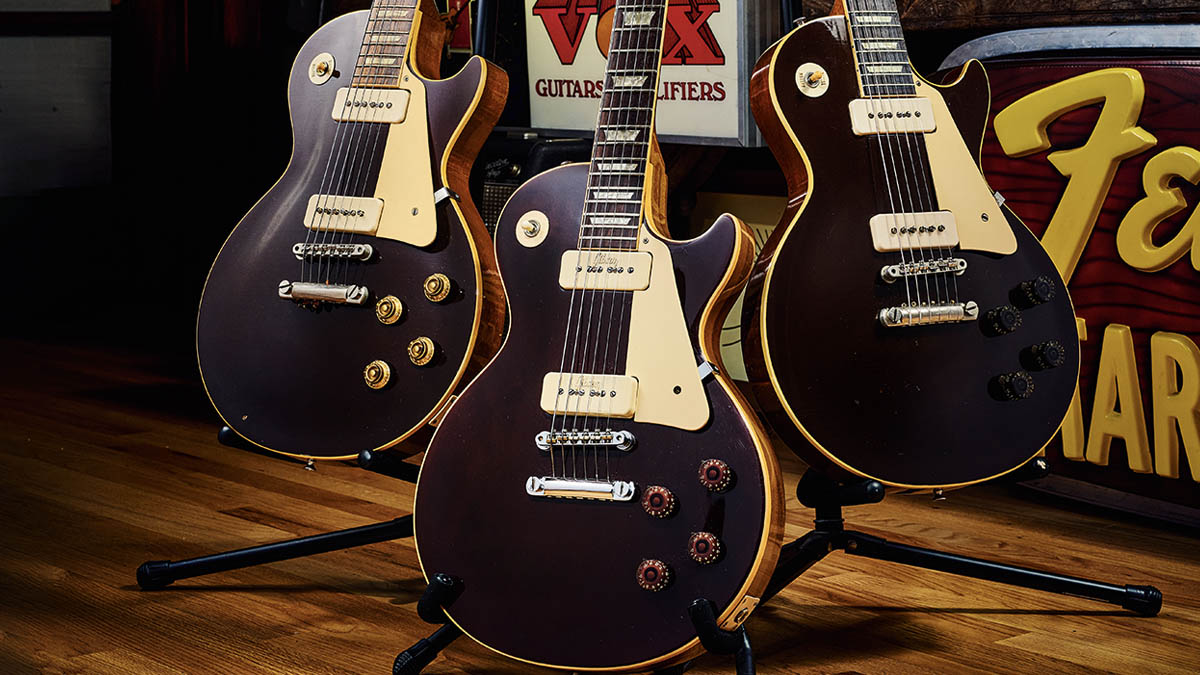
Do you have any expectations about where your music will be at 20 years from now?
“With any luck, in another 20 years I’ll be out of this fucking business. I’m not a lifer. I’ll probably take it to 50 years. That’ll make me 61 when I peace out. I think 50 years in any occupation is good. I don’t want to be 80 and still asking the question: who killed John Henry? I’ve so little interest in that. As an old person I just don’t want that.
I’m at the height of my skillset, and the minute it degrades to where I can’t play or sing as well as I’m doing now is the minute I plan the exit, because I don’t want to be the old grey mare
“I’m at the height of my skillset, and the minute it degrades to where I can’t play or sing as well as I’m doing now is the minute I plan the exit, because I don’t want to be the old grey mare. I just won’t do it. I’ve seen it. I see it now: always being on the road, always doing something, always playing… No. This place [looks around] will go to somebody else. The guitars will go to somebody else eventually.”
What will you do then?
“Open up a little antique shop. Do flea markets.”
You’d probably do really well.
“Yeah. Put that same intensity into something else. I don’t know what. But when I’m 61 in 2038, that’s it. Enough. 50 years. What else can I do? I mean, I know The Rolling Stones just put out a record and Mick’s 80 – great. They’re obviously still into it. I’m not going to be doing that. Wheel me out? No fucking way.”
- Blues Deluxe Vol. 2 is out now via J&R Adventures.
Rod Brakes is a music journalist with an expertise in guitars. Having spent many years at the coalface as a guitar dealer and tech, Rod's more recent work as a writer covering artists, industry pros and gear includes contributions for leading publications and websites such as Guitarist, Total Guitar, Guitar World, Guitar Player and MusicRadar in addition to specialist music books, blogs and social media. He is also a lifelong musician.

